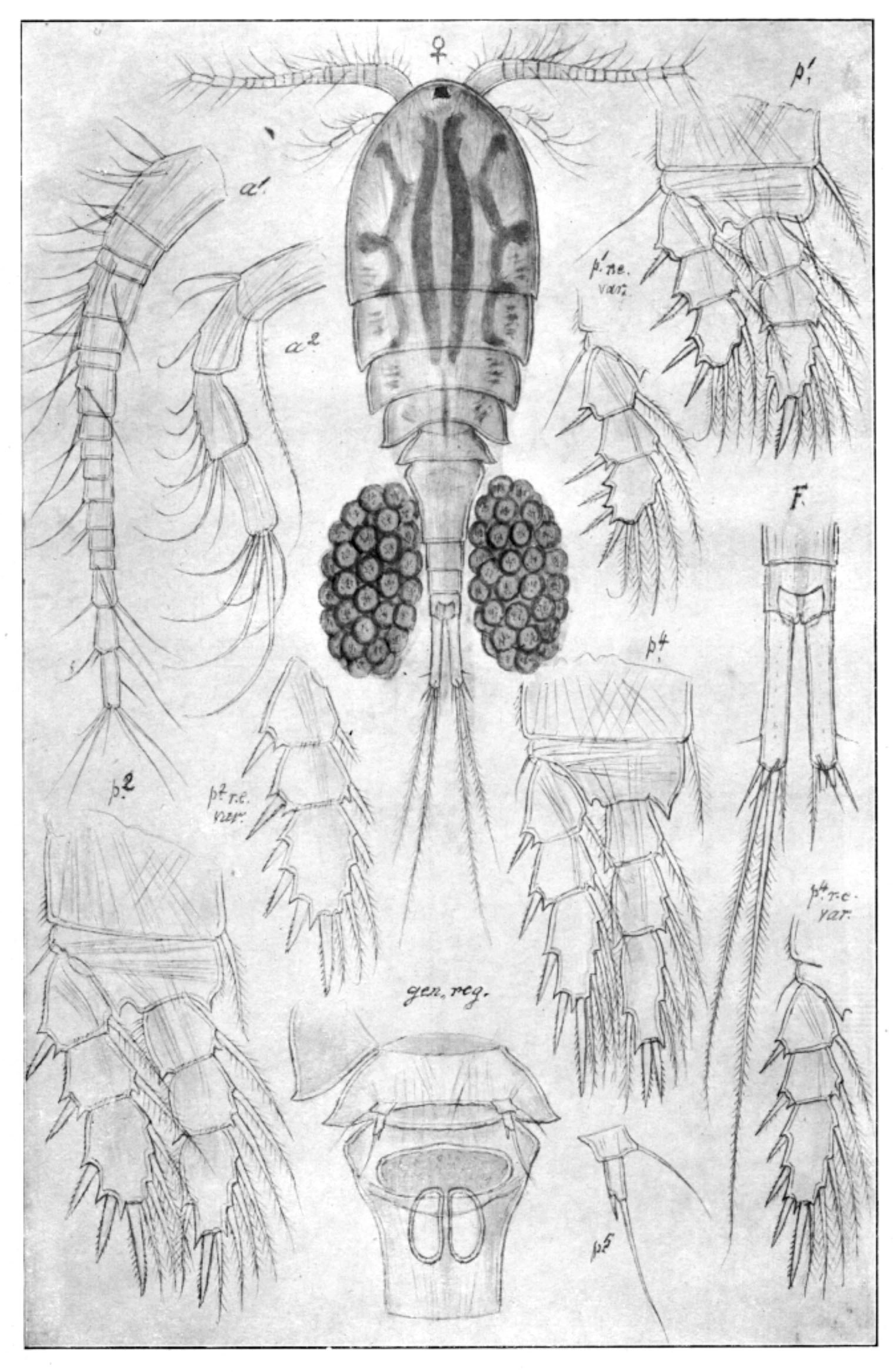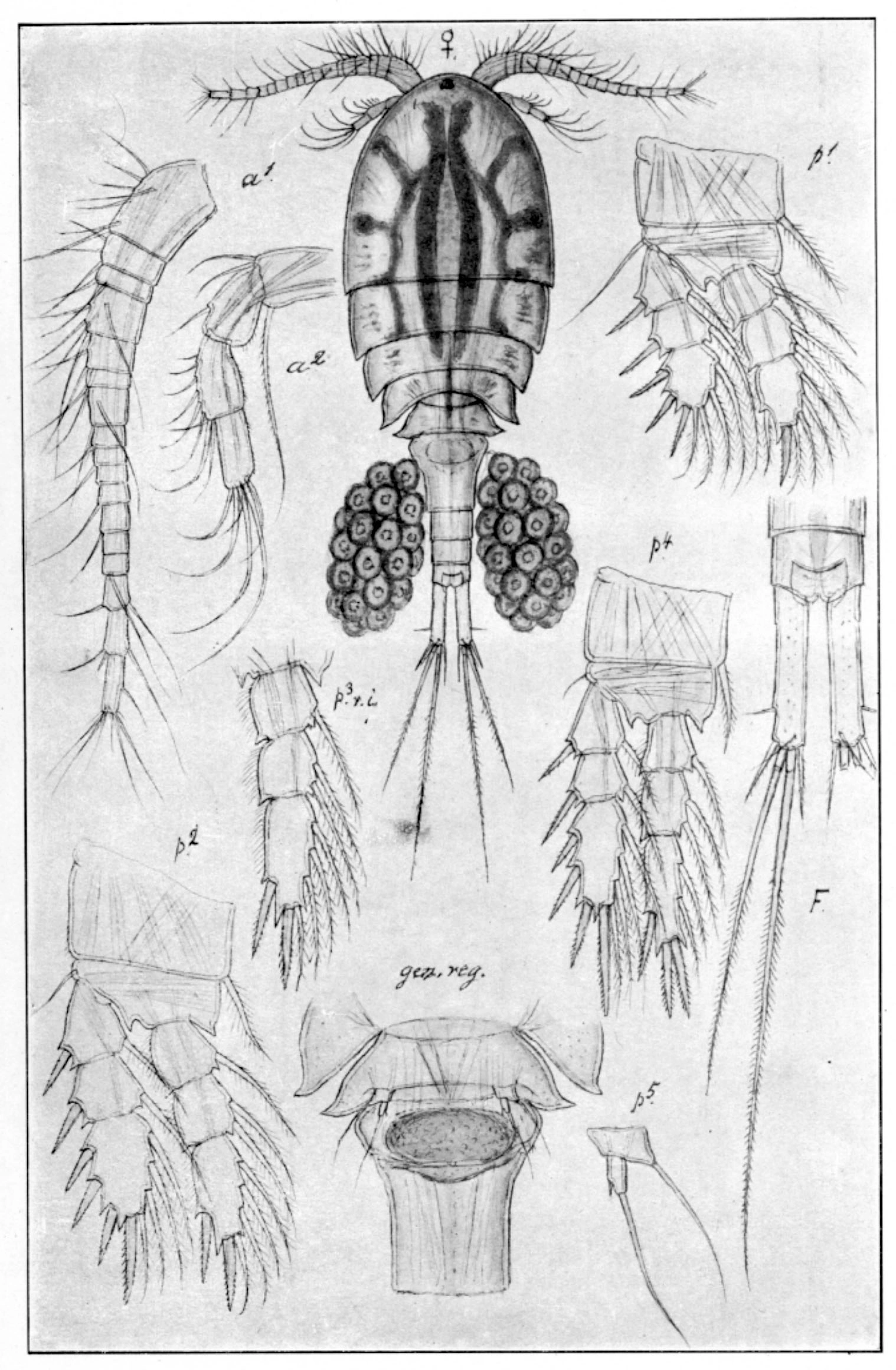Acanthocyclops vernalis
Acanthocyclops vernalis is widely distributed in the south of Norway being most common in ponds and small lakes. Acid and electrolyte poor water seems to favour the species.
Key characteristics
Acanthocyclops vernalis (female)
Acanthocyclops vernalis is more slender than A. robustus, and its furca is some longer, approximately 6 times as long as wide. The anterior antennae’s are composed of 17 segments reaching the first thorax segment. Studies have shown that the spine formula may vary and can not be used to distinguish the two species, which for sure have been mixed up. The spine formula of the last segment of the exopodite of the first to fourth pairs of legs is normally 2.3.3.3, but 3.4.4.4., or a mix, do also occur. The colour is light yellowish with a more or less distinct reddish tinge.
Female: Length 1.40–1.50 mm
Male: Length smaller than the female
Ecology and distribution
A. vernalis is a littoral copepod found in 7 % of the investigated lakes. It is widely distributed in the south of Norway, while it is rare in north where it is only found in small ponds. The frequency of A. vernalis increases with altitude and it is found at 1444 m a.s.l. It occurs in water bodies of all sizes, being most common in ponds and small lakes. Acid (pH<5.0) and electrolyte poor water (conductivity<4 mS/m) seems to favour the species.
| Vitenskapelig navn | < 4,5 | 4,5 - 4,9 | 5,0 - 5,4 | 5,5 - 5,9 | 6,0 - 6,4 | 6,5 - 7,0 | 7,0 - 7,4 | > 7,5 |
|---|---|---|---|---|---|---|---|---|
| 23 | 20,3 | 9 | 9,5 | 7,7 | 2,9 | 1,8 | 0 |
| Vitenskapelig navn | < 1,0 | 1,0 - 1,4 | 1,5 - 1,9 | 2,0 - 2,9 | 3,0 - 3,9 | 4,0 - 4,9 | 5,0 - 6,9 | 7,0 - 9,9 | > 10,0 |
|---|---|---|---|---|---|---|---|---|---|
| 11,3 | 15 | 10,8 | 8 | 5,6 | 1,9 | 0 | 2,8 | 3,5 |
| Vitenskapelig navn | < 0,01 | 0,01 - 0,09 | 0,1 - 0,9 | 1,0 - 9,9 | 10,0 - 99 | 100 - 999 | > 1000 |
|---|---|---|---|---|---|---|---|
| 7,8 | 6,5 | 10,4 | 7,6 | 5,4 | 6,1 | 8,7 |
| Vitenskapelig navn | < 100 | 100-299 | 300-499 | 500-699 | 700-999 | >1000 |
|---|---|---|---|---|---|---|
| 2,1 | 4,7 | 4,1 | 13,7 | 14,3 | 10,2 |
Look alikes
Acanthocyclops robustus

